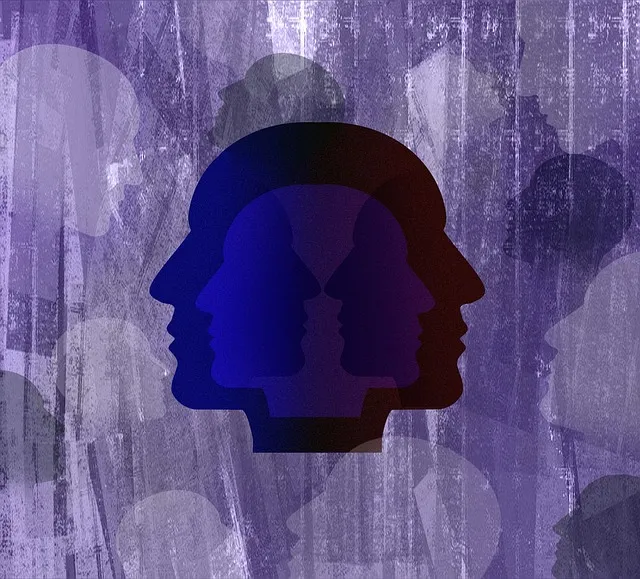Kaiser Permanente mental health centers prioritize cultural sensitivity in patient care, recognizing that diverse backgrounds impact emotional well-being and healthcare interactions. Through training, workshops, and inclusive practices, staff cultivate emotional intelligence, personalize treatment, and build trust with patients from various cultures. This approach leads to improved patient outcomes, satisfaction, and mental well-being, such as reduced depression rates. Superior Mental Health Center, an affiliate, implements strategies like cultural competency training, open dialogues, resilience initiatives, and burnout prevention to deliver tailored care for diverse communities, ultimately enhancing overall mental health services.
“In today’s diverse society, cultural sensitivity is an indispensable aspect of mental healthcare practice. This article explores the profound impact of cultural competency on patient outcomes, drawing insights from industry leaders like Kaiser Permanente and Superior Mental Health Center. We delve into strategies for navigating ethical challenges in multicultural settings, enhancing accessibility, and fostering acceptance of mental health services across various cultures. By understanding the rich tapestry of cultural diversity, healthcare providers can offer more effective, culturally competent care.”
- Understanding Cultural Diversity in Mental Healthcare
- The Impact of Cultural Sensitivity on Patient Outcomes at Kaiser Permanente
- Navigating Ethical Challenges in a Multicultural Setting
- Strategies for Providing Culturally Competent Care at Superior Mental Health Center
- Enhancing Accessibility and Acceptance of Mental Health Services Across Cultures
Understanding Cultural Diversity in Mental Healthcare

In today’s diverse society, mental healthcare providers at superior organizations like Kaiser Permanente mental health centers must embrace cultural sensitivity as a cornerstone of patient care. Understanding and appreciating the intricate tapestry of cultural diversity is essential to delivering effective treatment. Patients from various backgrounds bring unique perspectives, experiences, and beliefs that significantly influence their emotional well-being and interactions with healthcare systems.
At the core of this approach lies emotional intelligence, where healthcare providers cultivate self-awareness and empathy to navigate these differences. Regular Healthcare Provider Cultural Competency Training and Stress Management Workshops within organizations like Kaiser Permanente can equip staff with the tools to recognize and respect cultural nuances, ensuring every patient receives personalized care tailored to their specific needs. This holistic understanding fosters a more inclusive environment, enhancing the overall mental healthcare experience.
The Impact of Cultural Sensitivity on Patient Outcomes at Kaiser Permanente

At Kaiser Permanente mental health centers, cultural sensitivity is a cornerstone of patient care, significantly influencing treatment outcomes. By recognizing and respecting diverse cultural backgrounds, beliefs, and values, healthcare providers create an environment that fosters trust and understanding. This approach is particularly vital in addressing mental health issues, which often manifest differently across cultures. For instance, what may be considered expressive behavior in one culture could be interpreted as a sign of distress in another.
Cultural sensitivity enhances communication strategies, enabling mental health professionals to tailor their approaches effectively. This personalized care not only improves access to services but also boosts patient satisfaction and adherence to treatment plans. Moreover, it promotes the development of inner strength among patients, as they feel heard and validated within the healthcare system. As a result, Kaiser Permanente has seen promising outcomes, including reduced rates of depression prevention and improved overall mental well-being among its diverse patient population.
Navigating Ethical Challenges in a Multicultural Setting

Navigating ethical challenges in a multicultural setting is a nuanced aspect of mental healthcare practice, especially within esteemed institutions like Kaiser Permanente mental health centers. With diverse populations seeking support, understanding cultural nuances and promoting equitable care becomes paramount. For instance, what may be considered therapeutic in one culture could be perceived differently in another. This presents the challenge of balancing culturally tailored interventions with evidence-based practices.
Professionals at superior healthcare facilities must prioritize cultural sensitivity training to mitigate potential ethical dilemmas. By fostering an environment that embraces mindfulness and adaptability, mental health practitioners can effectively support individuals from various backgrounds. Moreover, addressing issues like burnout prevention is crucial for maintaining a healthy work-life balance, enabling professionals to provide consistent care. This, in turn, contributes to the overall well-being of patients, promoting self-esteem improvement and reinforcing mind over matter principles within diverse communities served by Kaiser Permanente mental health centers.
Strategies for Providing Culturally Competent Care at Superior Mental Health Center

At Superior Mental Health Center, a Kaiser Permanente affiliate, culturally competent care is more than a goal—it’s a cornerstone of our practice. We recognize that individuals from diverse cultural backgrounds experience mental health challenges uniquely, shaped by their beliefs, values, and experiences. To provide superior care, our center has implemented several strategies.
These include training programs designed to enhance our understanding of various cultural perspectives on mental illness. We foster open dialogues to explore and address the Mental Illness Stigma Reduction Efforts within our communities, promoting a safe and non-judgmental environment for all patients. Moreover, we prioritize Resilience Building initiatives that empower clients to navigate life’s challenges effectively. Additionally, burnout prevention strategies for healthcare providers are integral to maintaining a supportive work environment where professionals can offer their best, reflecting the quality of care we strive to deliver at Superior Mental Health Center.
Enhancing Accessibility and Acceptance of Mental Health Services Across Cultures

In an increasingly diverse society, enhancing accessibility and acceptance of mental health services across cultures is paramount. Kaiser Permanente mental health centers strive to provide superior care that respects and understands the unique needs of various communities. This involves not only offering services in multiple languages but also tailoring interventions to align with cultural beliefs and practices. By integrating culturally competent approaches, these centers ensure that all individuals, regardless of their background, can access and benefit from quality mental healthcare.
Community outreach programs, public awareness campaigns, and mental health education programs designed with a focus on cultural sensitivity play pivotal roles in this endeavor. Implementation of these initiatives increases visibility and understanding of mental health issues within diverse communities. Moreover, they foster an environment where seeking help is normalized, breaking down barriers and encouraging more individuals to prioritize their mental well-being. As these efforts gain traction, the overall acceptance and utilization of mental health services are poised to rise, leading to better outcomes for all.
Cultural sensitivity is a cornerstone in providing effective mental healthcare, as evidenced by successful initiatives at organizations like Kaiser Permanente and Superior Mental Health Center. By understanding cultural diversity, navigating ethical challenges, and implementing strategies for culturally competent care, mental health professionals can significantly improve patient outcomes and enhance the accessibility and acceptance of services across diverse communities. Incorporating these practices at institutions such as Kaiser Permanente and Superior Mental Health Center ensures that mental healthcare is inclusive, respectful, and tailored to meet the unique needs of every individual, fostering better health outcomes and stronger, more connected communities.






